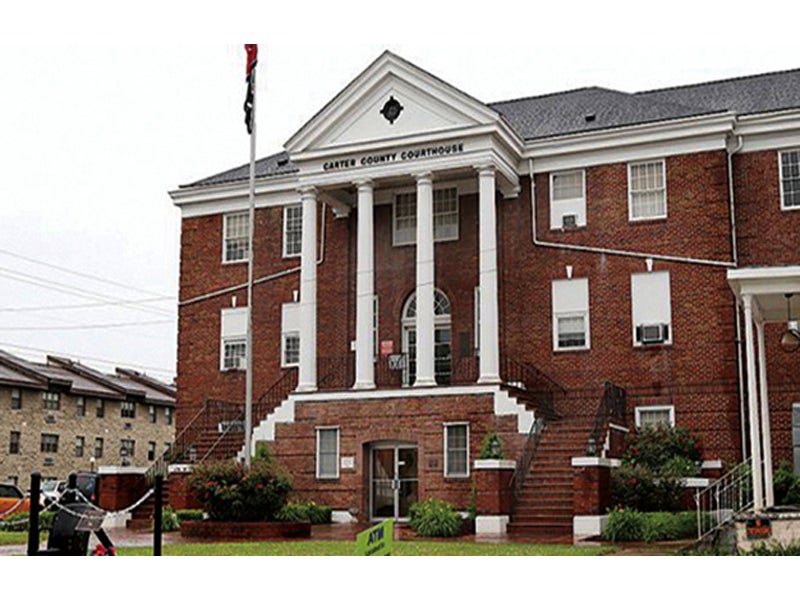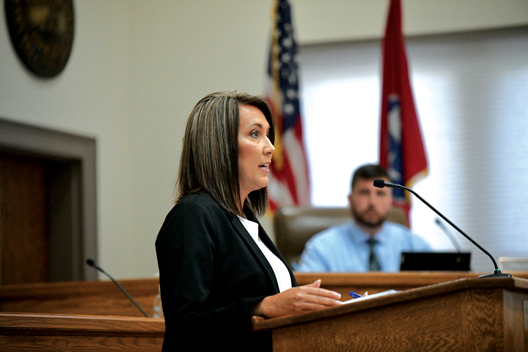State Comptroller’s office says audit findings can and must be corrected
Published 12:57 pm Friday, March 24, 2023

- File Photo/Carter County Courthouse
|
Getting your Trinity Audio player ready...
|
An audit of Carter County offices for the year ending June 30, 2022, will result in a further investigation of the Solid Waste and the School Transportation Departments.
The audit findings of the Solid Waste Department included issues with accounting functions, computer backup procedures, and failure to review log.
John Dunn, Director of Communications for the Tennessee Comptoller’s office, said “the work required of Carter County to fix its accounting issues will not be difficult and is largely traceable to mismanagement.”
The findings in the Office of Finance Director were:
– The accounting records for various funds had not been properly maintained
– The county had deficiencies in budget operations
– Deficiencies were noted in the posting of journal entries
– Deficients were noted in the maintenance of capital asset records
– The office had purchasing deficiencies
– The school federal projects and “other education” special revenue funds had fund deficits at the end of June 30, 2022.
The County Mayor’s office says corrective action has been taken by the office of the Finance Director Carolyn Watson, who took over when former Finance Director Brad Burke resigned in August 2021. Also, the deputy director resigned a short time later, leaving Watson with a young and inexperienced team.
“Overall, the audit resulted in 11 findings and recommendations which have been reviewed with Carter County management,” said Dunn.
Dunn said it is really important that the person leading the finance office and its employees are highly capable so as to provide proper management, leadership, and oversight. “If that happens, then the centralized financial function can be very successful for the county,” he further noted. “I am confident that the Carter County Finance Director with a little help can correct the discovered issues ahead of the next annual audit. However, it is going to require significant steps to improve operations and accountability,” Dunn said.
“What it amounts to is poor accounting practices in Carter County’s financial statements,” Dunn further opined.
Of the 11 audit findings, six detail “deficiencies, areas of noncompliance, and material weaknesses in the finance department.”
“Carter County’s audit is one of the last audits we’re releasing in this cycle, and much of that is because it took so long to get the audit and the financial statements in a position where we could express an opinion,” Dunn said.
The audit noted that the Solid Waste Department had accounting deficiencies, among them accounts that were not properly maintained or reconciled of commercial customers who had charge accounts. Additionally, independent reconciliations of the monthly invoice with collections remitted to the county trustee were not performed.
Also, the audit noted that there was no verification of receipts to deposits of monthly collections at the Roan Mountain Convenience Center.
The department did not perform daily computer system backups and the office did not review its software audit logs.
In the school department federal project and other education special revenue funds the audit noted deficits in unassigned fund balances as of June 30, 2022.
According to the comptroller’s office, auditors found other budget issues such as expenditures exceeding the appropriations approved by the county commission, a failure to maintain accurate capital asset records, and purchasing deficiency.
The audit notes that as of June 30, 2022, certain general ledger account balances in the General, SolidWaste/Sanitation, Highway/Public Works, Cities–Sales Tax, City School ADA–Elizabethton, General Purpose School, and School Federal Projects funds were not materially correct, and audit adjustments totaling $768,578; $614,790; $1,268,049; $1,878,940; $1,018,796; $606,688; and $960,722, respectively, were required for the financial statements to be materially correct at year-end.
Generally accepted accounting principles require the county to have adequate internal controls over the maintenance of its accounting records. Material audit adjustments were required because the department’s financial reporting system did not prevent, detect, or correct potential misstatements in the accounting records. “It is a strong indicator of a material weakness in internal controls if the department has ineffective controls over the maintenance of its accounting records, which are used to prepare the financial statements, including the related notes to the financial statements,” auditors noted.
Also, accounts receivables and payables were not properly recorded in the accounting records of various funds of the county and school department at June 30, 2022. Subsidiary records provided by the county were incomplete, did not reconcile to the general ledger, reflected negative balances, or were not provided for various funds. “Sound business practices dictate that all receivables and payables should be determined and posted to the accounting records prior to closing the records at year-end,” the audit noted.
Dunn said the work required of Carter County going forward is not difficult and is largely traceable to management. “It is really important that the person leading the financial director’s office and the people working in that office are highly capable. What we do want to make sure is that office is well run because when it is, that centralized financial function can be very successful for counties,” he emphasized.
“Carter County officials, commissioners, and the audit committee should carefully examine these findings and take the necessary corrective action. It is imperative that steps be taken in the finance department in order to improve operations and accountability,” Dunn said.





